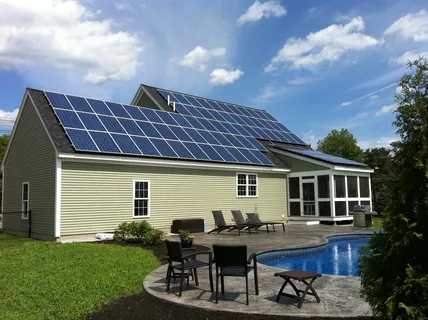In recent years, more homeowners have been turning to solar energy as a smart investment. The appeal of reducing energy bills while contributing to a cleaner environment is hard to resist. But beyond the immediate benefits, understanding from sunlight to savings: how a solar system for home pays off over time can help homeowners realize the true financial impact of solar power.
The Initial Investment: What to Expect
Installing a home solar system requires an upfront investment. This includes the cost of solar panels, inverters, installation fees, and sometimes battery storage. While this initial expense may seem steep, it’s important to view it as a long-term investment rather than just a cost.
Government incentives, tax credits, and rebates often help reduce the financial burden, making solar installations more accessible. These financial aids can shorten the payback period, making it easier for homeowners to start enjoying savings sooner.
How Solar Panels Save You Money
Once installed, solar panels generate electricity from sunlight, which directly powers your home and reduces the amount of electricity you need to buy from your utility company. This translates into lower monthly energy bills. Over time, these savings accumulate and offset the initial installation costs.
The key to understanding from sunlight to savings: how a home solar system pays off over time lies in recognizing the compounding effect of energy savings. As energy prices rise, the value of the electricity your system produces increases, further accelerating your return on investment.
Increasing Home Value and Energy Independence
Beyond direct savings, a solar system can increase your home’s market value. Many buyers are willing to pay a premium for homes with solar installations, recognizing the ongoing cost benefits and environmental advantages.
Additionally, solar panels provide a measure of energy independence. By generating your own power, you are less vulnerable to rising electricity rates or outages, which adds peace of mind and financial stability.
Long-Term Benefits: Maintenance and Durability
Solar panels require minimal maintenance, with most systems lasting 25 years or more. Over this lifespan, the consistent generation of free electricity enhances the long-term savings. With warranties often covering 20-25 years, homeowners can trust their investment will continue paying off.
In summary, from sunlight to savings: how a home solar system pays off over time is a journey that starts with a solid investment but grows into substantial financial and environmental benefits. As solar technology advances and energy costs rise, the value of solar systems only becomes more pronounced for homeowners seeking sustainable and cost-effective energy solutions.



